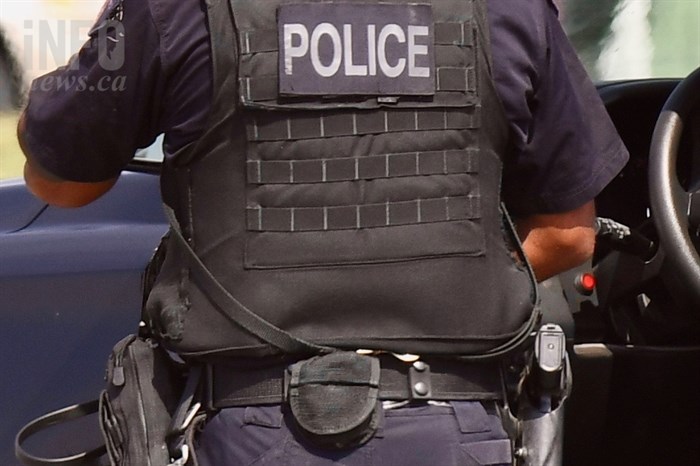
(JOHN MCDONALD / iNFOnews.ca)
October 09, 2022 - 7:03 AM
It’s one thing to say that police should no longer be the default service to respond to calls from people dealing with mental health crises because it's better for those in need. But there's also a business case for making a change.
A pilot “Peer Assisted Care Teams” program in North and West Vancouver shows that, after almost a year and 474 calls, there are likely major cost savings to local governments by putting all-civilian teams into the field instead of police.
“I haven’t done the economics but, with that number of contacts for the North Shore, how many times would police have been the default?” Jonny Morris, executive director of the B.C. Mental Health Association, told iNFOnews.ca. “If they (police) had responded, let’s say 300 times, I would imagine the team is starting to pay for itself in money that is being diverted – money that is not spent.”
The pilot programs, run through the association, started in November 2021 and, statistics to the end of September this year showed that, of the 474 mental health calls the teams responded to, less than 15 needed to bring in police and/or ambulance.
In order to access the peer assisted system, people have to call a regular phone line rather than 911, which many may not know.
The association is working on ways to change that but there is also concern that relying on the 911 system may deter some people from calling.
READ MORE: North Vancouver leading the way on mental health calls in Kamloops, Okanagan
An outside company will crunch the numbers on the North Shore to get a more accurate picture of the costs and benefits of the program but, the fact that it’s expanding to Victoria and New Westminster with, mostly, provincial government funding is some indication of its effectiveness.
A study out of Eugene, Oregon, found that, out of 24,000 calls their teams responded to in 2019, they saved $8.5 million U.S.
That worked out to $354 per call that was not spent for police, ambulance or other services.
“The more important part is people’s experience with care,” Morris said. “There’s more likelihood they are going to come back to access care. Our hope and aim is that people have a good experience in receiving this care and they come back for more.”
He's also hoping the service can be expended to provide more follow-up care as well.
The programs run four days a week at select hours and cost in the range of $350,000 to $400,000 for that level of service.
The City of Toronto is paying $8.5 million to fund its crises care teams in four areas of the city but only on a 24/6 basis.
Kelowna RCMP Supt. Kara Triance has pushed for getting the RCMP out of being the default service to handle mental health calls.
In February, she told Kelowna city council that her detachment responded to 3,100 calls with a mental health component in 2021.
“That is significantly impacting the meaningful work we are doing,” Triance said at the time.
READ MORE: Kelowna's top cop calls for more mental health resources to help those in crisis
She has also pointed out to council that local taxpayers are paying to send RCMP members out on these calls.
Morris is hoping to expand the program further and is keen for it be tried in the Interior.
Both Kamloops and Kelowna councils and the RCMP have called on Interior Health to fund more nurses to ride with police officers on these calls. Each city has one such team now.
Penticton wants a similar program in that city.
The North Shore program trains and pays the peer advisor and hires its own health care professionals, which may be nurses, councillors or social workers.
“I think this is a great addition to the tool box,” Morris said. “But, we’re talking about a seismic shift here. We’re talking about a paradigm change - shifting a default reliance on police as the mental health responders.”
To contact a reporter for this story, email Rob Munro or call 250-808-0143 or email the editor. You can also submit photos, videos or news tips to the newsroom and be entered to win a monthly prize draw.
We welcome your comments and opinions on our stories but play nice. We won't censor or delete comments unless they contain off-topic statements or links, unnecessary vulgarity, false facts, spam or obviously fake profiles. If you have any concerns about what you see in comments, email the editor in the link above.
News from © iNFOnews, 2022